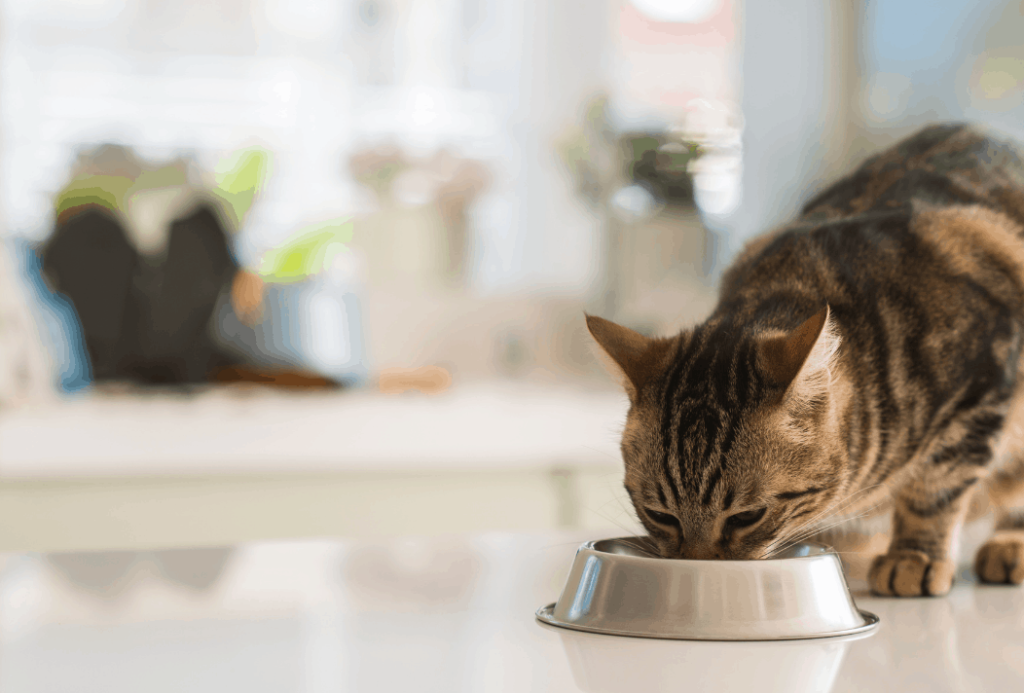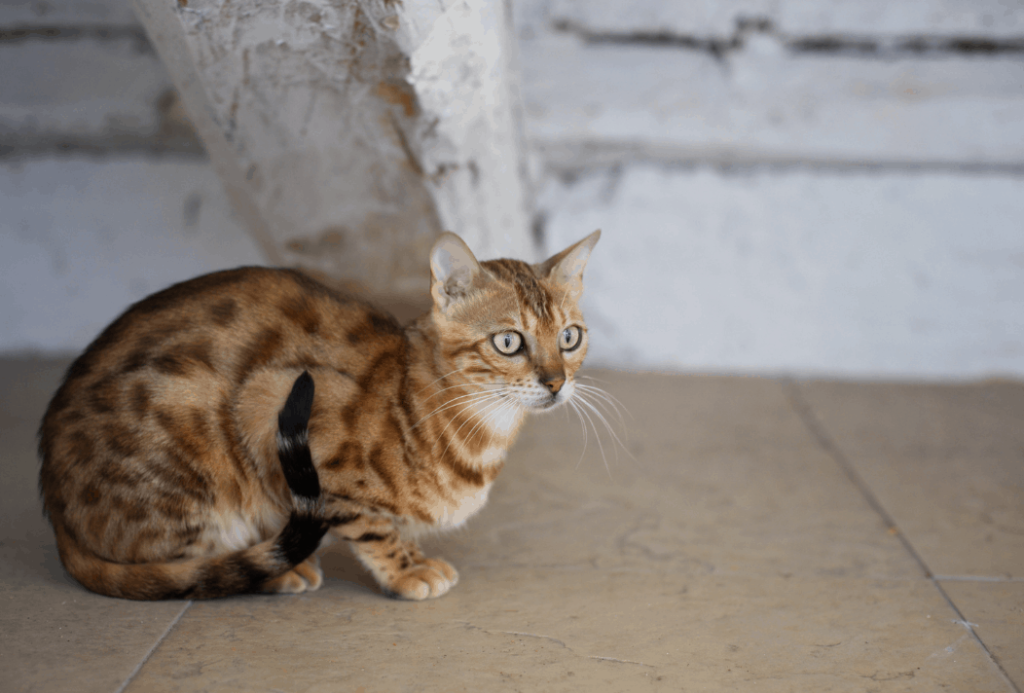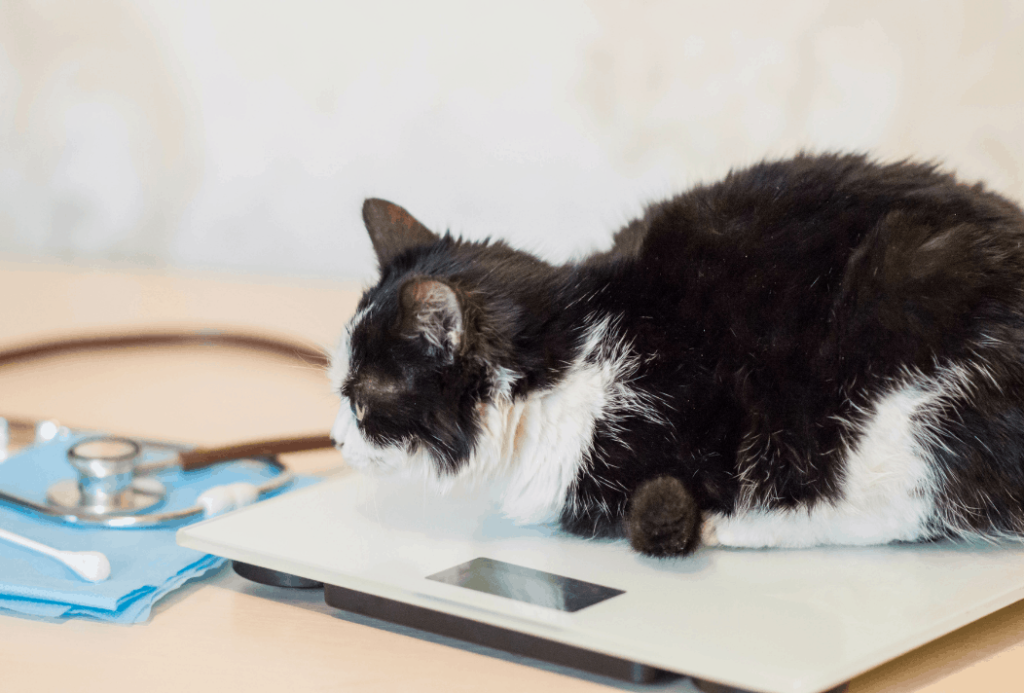When it comes to illness, cats can be difficult to read. They are naturally stoic creatures, and so it is often tricky to know when there’s something wrong, or why your cat may be losing weight.
If your cat is losing weight it could indicate that your cat has a health issue, but sometimes this change is gradual and goes unnoticed. Unfortunately, this could mean that a disease can go undetected until your kitty is in critical condition. This is why routine checkups with your vet are important.
If you can’t get to the vet frequently for check ups you can also do an at-home check up. Weigh your cat at home on your scale, by first placing him in a carrier that is positioned on a scale and then removing him and weighing just the scale. If your cat’s weight is decreasing, this may need a trip to the vet.
Causes of weight loss in cats
Sarcopenia in senior cats
There are numerous potential causes for weight loss in cats. The most benign cause is called sarcopenia. This refers to the gradual muscle wasting that is observed in most senior cats. It is thought to be related to their intestinal tract and how digestive ability decreases over time. Therefore, senior cats aren’t getting enough nutrients to their body, and muscles are eventually broken down for energy.
Organ failure
Organ failure such as chronic kidney disease is a major cause of weight loss in middle-aged and older kitties. Like sarcopenia, the digestive ability of the intestines is negatively impacted. Also, cats with chronic kidney disease (CKD) tend to eat less due to nausea and gastrointestinal ulcers, in some cases. And because cats with CKD urinate frequently and in large amounts, some of their weight loss is attributed to dehydration.
Dietary malabsorption
There are also primary intestinal diseases rather than secondary ones like with CKD. Food sensitivities and autoimmune problems like inflammatory bowel disease can lead to dietary malabsorption. In inflammatory bowel disease (IBD) patients, inflammatory cells attack the lining of the intestines. The lining becomes thickened and can no longer absorb nutrients from food very well. Weight loss gradually occurs due to malabsorption and due to fluid losses from common clinical signs like vomiting and diarrhea.

Cancer
Cancer is another major cause of weight loss in cats. Like humans, cancer can occur almost anywhere in a cat’s body. Intestinal cancers like lymphoma and oral cancers like melanoma or squamous cell carcinoma are some of the most common cancers in cats. Depending on the cancer’s location and risk of metastasis to other body parts, cancer can cause intestinal absorption problems and pain, both of which will contribute to weight loss. In cases with very aggressive cancer, this weight loss can occur quickly.
Diabetes
Cats who are overweight or obese are more likely to develop diabetes mellitus, which is similar to diabetes in humans. Once diabetes develops, a cat’s cells are not able to take in glucose from the bloodstream. Glucose is a major source of energy for cells, especially brain cells. When the cells in the body do not have enough glucose to perform their various functions, protein and fat are broken down as secondary energy sources. This combination of fat and protein loss results in weight loss.
Hyperthyroidism
Hyperthyroidism can also cause weight loss. Your cat’s thyroid gland is responsible for creating thyroxine, a hormone that is vital for a healthy metabolism. Overactive thyroid glands produce too much of this hormone, thus speeding up the metabolism and resulting in the breakdown of muscle and fat.
Dental disease
Dental disease can contribute to weight loss in an indirect manner. If your cat has significant dental disease such as periodontal disease, resorptive lesions, tooth fractures, or a tooth root abscess, he may experience oral pain. Therefore, your cat may eat less if it hurts to chew solid kibble. In some cases, even soft food may be too difficult to eat! Routine dental care with your vet can help prevent dental disease.
Anxiety or stress
Behavioral disorders can also cause weight loss in cats. Some cats can have anxiety due to numerous things in their environment. Loud sounds, new furniture, children, and even new cats or dogs in the home are all examples of stressors for some cats. Cats that are anxious or stressed may be more likely to hide for as long as the stressor is present. These cats are less likely to eat, especially if their food bowl is kept in an area that isn’t “safe.” For some ways to help identify and manage your cat’s anxiety, please check out this article.

Check ups are important to avoid conditions that can lead to weight loss in your cat
Routine check ups and senior lab work with your veterinarian can help to screen for many of the disorders that can lead to weight loss in your cat. If your cat is seven years of age or older, he or she should be seen by your vet at least twice a year. This is an opportunity to weigh-in and monitor the trends over past visits.

Your kitty can also be checked for signs of dental disease, and your vet can make recommendations if you feel that your cat is experiencing anxiety or stress. You can get your cat back on track to maintaining a good body condition score if you can help identify a cause for weight loss as quickly as possible!









